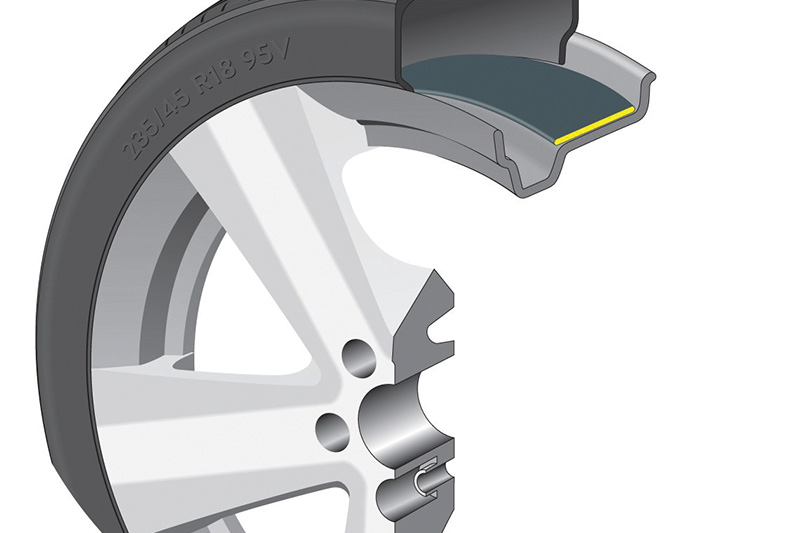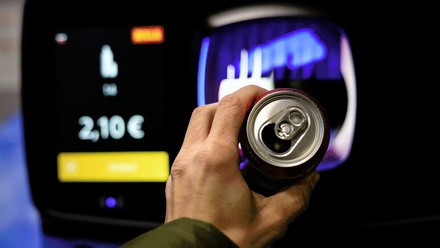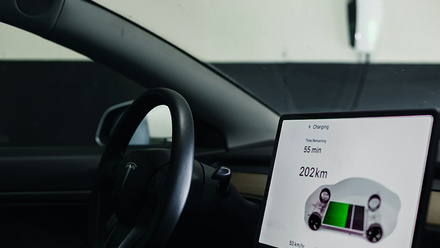Coconut shells dull tyre roar
A material from coconut shells has been developed by Carbon Air, in Manchester, UK, to help alleviate tyre road noise.

Carbon Air is introducing its technology to the wheels of internal-combustion-engine (ICE) cars and electric vehicles (EVs). The team explains the intrusion of road noise into a car’s passenger cabin is being exacerbated in EVs because, without an ICE to mask tyre roar, motorists are experiencing more noticeable droning sounds from the wheels for the first time.
The company’s research has found that activated carbon applied to a wheel rim – by way of an impregnation of an open cell foam coated on the wheel of the car – significantly reduces the resonance generated in the wheel cavity. The research and development team has found a 15dB reduction in peak tyre-cavity resonance (just over 200Hz is the typical frequency of a tyre driving on tarmac).
Activated carbon is formed by subjecting organic carbon matter, such as coconut shells, coal and sawdust, to super-heated steam and chemicals.
This process creates a dense network of microscopic pores, or nanopores, which can vary in type according to the source material being converted. These can cause significantly differing behaviour in the adsorption of air, which can be enhanced and tuned to a particular application.
John Coakley of Carbon Air says, 'We buy very fine powders made up of carbons from coconut shells.' He notes that the coconut shell produces the best microporous carbon at the smallest scale. The nanopores are reported to be highly effective in dispersing sound energy at low frequencies, and hence reduce resulting noise.
The grade of powder they use is, he says, 'a bit of a trade secret. We cannot go into it. It is a highly activated carbon pod and the top layer of improvement for this application for the tyre noise'.
He points out that as this technology is stuck to the rim of the wheel, rather than disposed of when the tyre is changed, so the noise-reducing device becomes more durable through pure longevity.
'We need about 3cm thickness of conventional foams in order to achieve the desired benefit…But if you try and stick a 3cm layer of foam onto a rim, then that gets in the way of the tyre being mounted and demounted. What you need is a thin layer of material to take the material on and off.'
With this technology, the team is only looking at sound absorption. But the fact that the carbon supports adsorption/desorption means low-frequency-sound absorption is boosted.
Activated carbon has previously been used for gas and liquid filtration, and in the water treatment and food industries. The use of the material to moderate the mechanical behaviour of air is novel, says Carbon Air.
The approach was first pioneered by PhD students, and now company shareholders, Rodolfo Venegas and Fouad Bechwati when researching loudspeakers.
Coakley explains, 'A loudspeaker is very similar to an air spring and sound absorption flows from some of these effects that we see inside loudspeakers. And we were exploring a number of different application areas that all flow from these thematic spaces. They are all concerned with the behaviour of the air in close contact with carbon rather than trying to filter it, which is how carbon has always been used in the past.'
He says they have worked with large wheel manufacturers and are talking to several automotive original equipment manufacturers.
In terms of further technology developments, he says they always seek to simplify things. 'This is a very harsh environment that we are dealing with. So, we are working with six manufacturers to optimise solutions to make sure it bottoms perfectly for the right vehicle using as efficient solution as possible.'
Activated carbon, 'is locked in essentially, permanently...So, use of activated carbon generally is a very good thing…It is potentially going to be viewed as being a carbon negative. We would not claim that to the entire product yet.'







